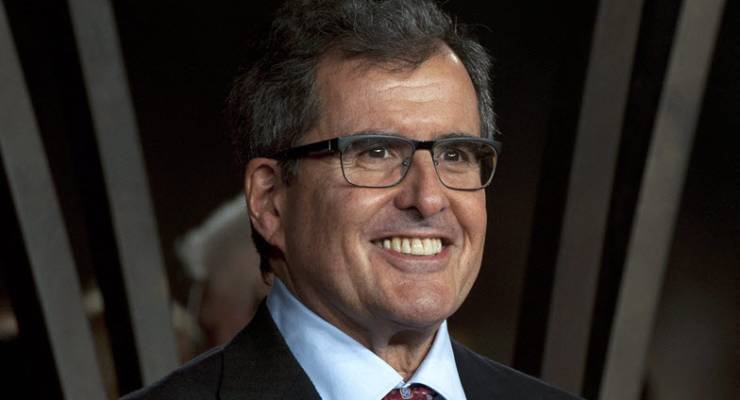
Former News Corp COO Peter Chernin
Should Macquarie Group be able to vote on a controversial pay system that has allowed it to milk hundreds of millions in fees out of a listed toll road company?
In a little-remarked development, that’s precisely what happened at the Macquarie Atlas Roads AGM in Sydney last Thursday, when Macquarie Group voted its 12.2% stake in favour of the remuneration report, thereby averting a first strike, as the total “against” vote came in at 24.13%.
Having received a record $163.5 million in fees in 2016 — exceeding the total $98 million distributed to investors — there is no doubt that Macquarie Group is conflicted in voting in favour of its own excessive fee deal at Macquarie Atlas Roads.
However, the Corporations Act only refers to conflicted individuals, not corporate entities. James Packer can’t vote on his pay at Crown Resorts, but a different set of rules apply to the Millionaire Factory. This is one loophole that should be shut.
If Macquarie Group had abstained all of its 68.2 million votes last Thursday, the against vote would have been 29% and the Macquarie Atlas Roads board would have been facing a potential spill at the 2018 AGM.
Instead, the board, with its unusual combination of local and Bermuda-based directors, will soldier on for another year, although concessions have already been granted, with the base annual management fee being cut to a flat 1% of the current $3 billion market capitalisation.
The performance fee — based on a 15% share of any market upside — has been what has really delivered for Macquarie Group because low interest rates and canny deal-making as a minority investor in a range of offshore toll road assets in France, Germany, the US and UK has let investors enjoy a profitable ride.
The AGM presentation pack pointed to $328 million in distributions since Macquarie Atlas Roads was created in 2010, but this is less than the total fees generated for Macquarie over the same period.
But will the board propose an excessive divorce payment on top of the largesse we’ve seen in recent years?
If Macquarie were a person, the recipient of all these excessive fees would undoubtedly make the following list of the 10 most questionable CEO payouts over the past decade:
The 10 most questionable CEO payouts over the past decade
News Corp, 2009: not only did Rupert Murdoch’s outgoing chief lieutenant Peter Chernin receive US$34 million in his final year, the severance package also included a commitment to buy two movies a year from him for the next six years, plus a range of other perks such as access to the corporate jet and secretarial services.
Santos, 2008: outgoing CEO John Ellice-Flint received a staggering $16.8 million termination payment.
Publishing and Broadcasting Ltd, 2007: John Alexander has made tens of millions from James Packer, but the $15 million termination payment as part of the 2007 demerger of Consolidated Media Holdings was difficult to justify, especially considering he stayed on the board.
Oz Minerals, 2008: $10.7 million proposed share payout to outgoing CEO Owen Hegarty was defeated by shareholders, so the board just gave him $8.35 million in cash instead.
ASX, 2006: when Tony D’Aloisio didn’t get the top job as part of the SFE merger, his Maurice Newman-led ASX board approved a termination payment of $7.78 million instead.
AGL, 2007: 63% vote against the remuneration report after CEO Paul Anthony departed with a $5.2 million termination payout out, which meant the Welshman received about $17 million for 17 months of work.
Transurban, 2008: 59% protest vote against remuneration report over the final $16.6 million pay packet to departing CEO Kim Edwards.
Qantas, 2009: 41% voted against the remuneration report due to the package of former CEO Geoff Dixon, which led to an $11 million pay packet when he served just five months of the year.
Challenger Financial Group, 2008: 70% against remuneration report due to $6 million pay packet for former CEO Mike Tilley.
Centro Properties Group, 2008: unexpected collapse caused a huge shock in 2008, and then the CEO Andrew Scott got a $3 million termination payment. Quite generous, considering investors lost more than $5 billion.








Crikey is committed to hosting lively discussions. Help us keep the conversation useful, interesting and welcoming. We aim to publish comments quickly in the interest of promoting robust conversation, but we’re a small team and we deploy filters to protect against legal risk. Occasionally your comment may be held up while we review, but we’re working as fast as we can to keep the conversation rolling.
The Crikey comment section is members-only content. Please subscribe to leave a comment.
The Crikey comment section is members-only content. Please login to leave a comment.